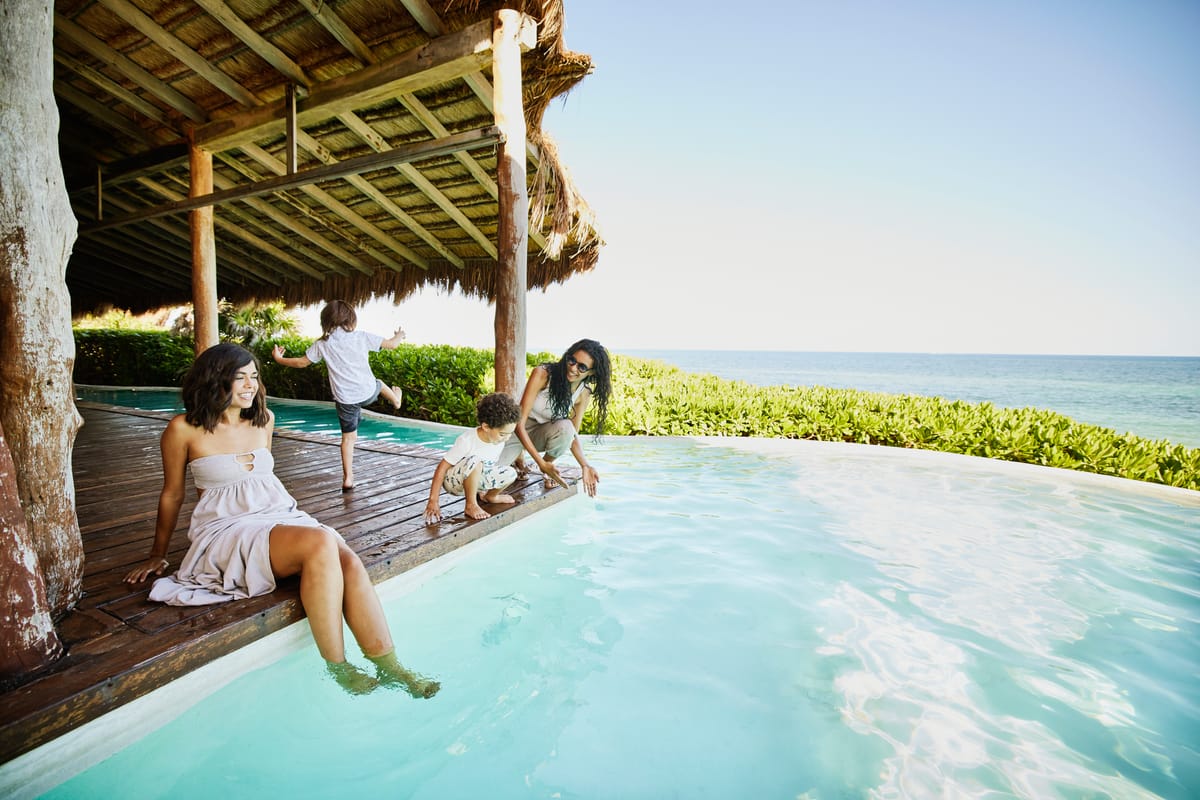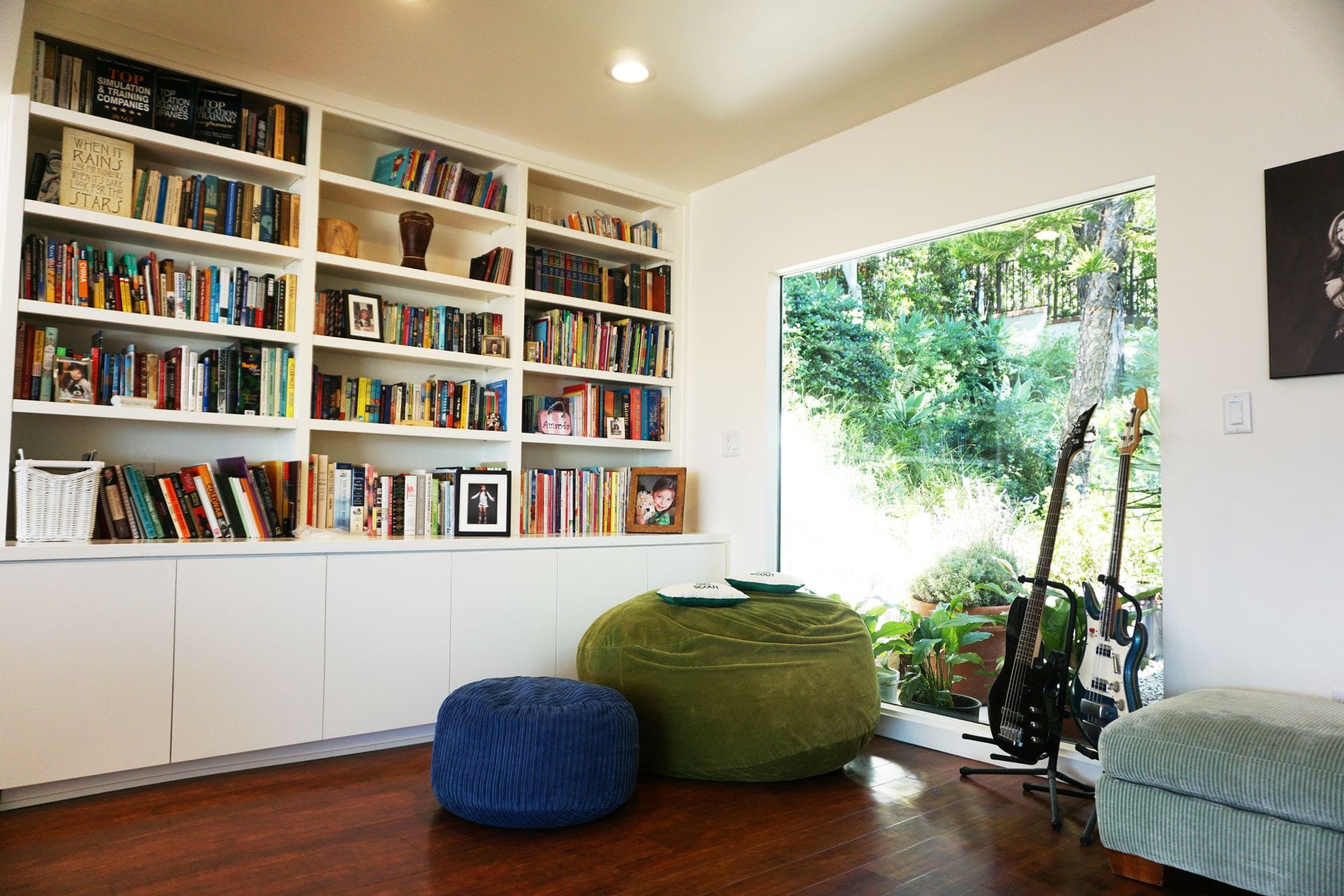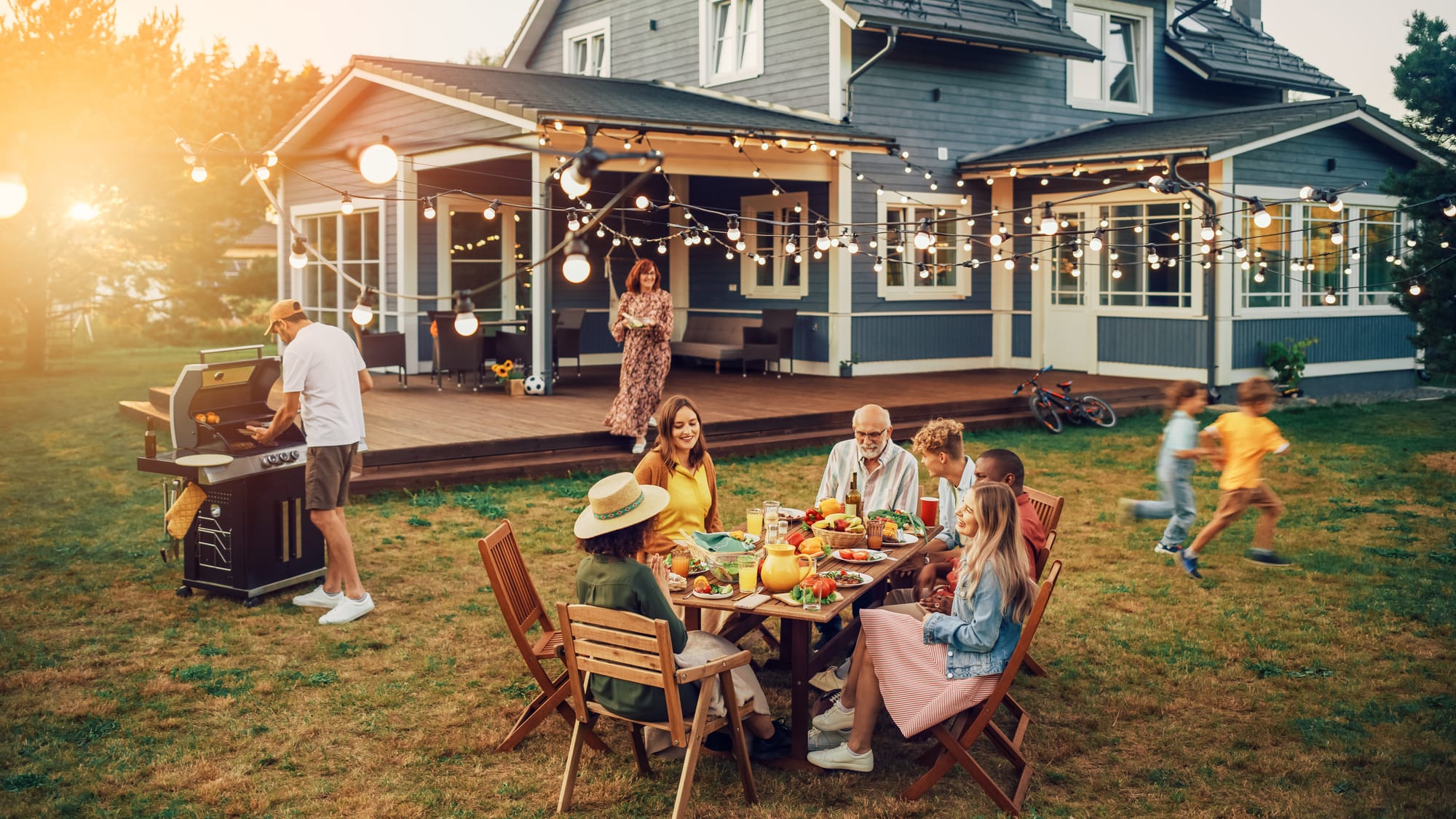Smart Alternatives to Renting Your Vacation Property: What to Do with a Second Home
Not every second home needs to be a business. If you're looking for more meaning and less stress, this guide offers creative, heart-driven alternatives to renting — like turning your space into a family haven, creative sanctuary, or a force for good.

Owning a second home is a dream for many. While short-term vacation rentals are often seen as the go-to solution and investment, they’re not for everyone.
Renting out your home can invite a host of logistical, regulatory, and personal challenges. Fortunately, there are smart, strategic, and even fulfilling alternatives that allow you to make the most of your second property without turning it into a rental business.
If you are a homeowner looking for more personal value, hoping to cut maintenance expenses, or just exploring your options, this article is for you.
In the sections that follow, we'll explore various alternatives to renting vacation property, starting with one of the most exciting and increasingly popular: home exchange. We’ll also cover ideas like long-term leasing, family use planning, seasonal housing swaps, and philanthropic opportunities that give your home a purpose beyond profit.
1. Join a home exchange community

If you're someone who values travel, culture, and meaningful experiences, home exchange is a refreshing alternative to renting out your second home.
Instead of listing your private home as a vacation rental, you can swap it with another person’s home in a different location. It’s a win-win setup that offers immense flexibility and adventure.
HomeExchange Collection lets you swap your home with other verified members. You can swap homes either simultaneously or at different times, depending on what works best for both parties.
With more than 360,000 homes and 5000+ luxury homes in 155+ countries available, the opportunities are nearly endless. You might stay in a cozy, fully furnished Parisian flat for a week while another family enjoys your beachfront home.
What sets HomeExchange Collection apart is the community-driven nature of the platform. Unlike vacation rentals, you’re not opening your door to strangers for money.
Instead, you’re building a connection with fellow travelers who are equally invested in trust and hospitality. Each home swap is built on a foundation of communication, mutual respect, and shared exploration.
Some of the notable benefits that HomeExchange Collection offers include:
- Exclusive and private: Each home is carefully assessed by our team based on strict criteria, including luxury design, top-tier amenities, and prime location. Members are also carefully vetted with access to the community limited to members with approved residences. Members also get access to customizable privacy settings such as preventing their home from showing up in search engines.
- Verified homes: Every property is thoughtfully chosen based on defined standards for design, location, and amenities. Find out if your home is eligible
- Customized support: Once your membership is activated, our dedicated Member Support team will be on hand to help you coordinate your exchanges.
- Protection and guarantees: You’re covered with reliable protection for cancellations or unexpected events, along with enhanced safeguards against property damage. We offer property damage protection of up to $2,000,000 and over than 99% of exchanges are incident-free. More info here
HomeExchange Collection you also uses a GuestPoints system that allows you to stay in someone else’s home even if they don’t come to yours, offering unmatched flexibility.
2. Use it for extended family retreats
Instead of renting your vacation home to strangers, consider transforming it into a shared family retreat. A place where loved ones can gather, relax, and create lasting memories.
This approach preserves the privacy and integrity of your second home and turns it into a valuable resource for connection and rejuvenation.
One of the greatest benefits of using your vacation home in this way is that it keeps the home in regular use without the stress and unpredictability of the short-term rental market.
Rather than worrying about bookings, damages, or constant turnover, you can focus on creating a space that’s warm, welcoming, and personal.
Consider the following:
- Start by setting up a simple system to coordinate visits. A shared digital calendar can help avoid scheduling conflicts, and periodic family check-ins ensure everyone has a fair chance to enjoy the property.
- You might even rotate holidays or long weekends between households, allowing different groups to make the most of peak seasons.
- To keep things running smoothly, agree in advance on responsibilities like maintenance, cleaning, and stocking basic supplies. Some families even contribute to a small joint fund to cover property upkeep or upgrades, spreading the costs evenly.
You can also use the home to host extended family reunions, multi-generational vacations, or quiet weekends for parents and children. It’s a chance to bring together relatives who may not see each other often, which is a rare and increasingly valuable experience in the modern world.
Children grow up remembering these special trips, bonding with cousins, and connecting with family history through stories, meals, and traditions passed down around the fireplace or dinner table.
3. Offer it as a corporate or wellness retreat
If the idea of renting your vacation property to vacationers doesn’t appeal to you, consider offering it as a space for corporate or wellness retreats for your company or workplace.
More and more companies, startups, and wellness professionals are seeking peaceful, private locations to host off-site meetings, strategy sessions, and team-building experiences away from the distractions of the office.
Your second home might be the perfect setting, especially if it offers scenic views, natural surroundings, or a cozy, relaxed atmosphere. A well-equipped kitchen, a few breakout areas, reliable Wi-Fi, and a tranquil outdoor space can easily transform the property into a unique venue for a focused and refreshing retreat.
4. Turn it into a creative space

Your second home doesn’t have to sit idle when you’re not using it. It can become a sanctuary for creativity. Artists, writers, filmmakers, and musicians often seek out quiet, inspiring places to focus on their work, away from the noise and demands of everyday life. By offering your property as a creative retreat, you give it a new purpose while supporting the arts in a personal and meaningful way.
Many homeowners create informal residency programs, opening their doors to creatives for short stays. These can range from a weekend of writing to a month-long painting residency. You can structure the arrangement in several ways. For instance, some homeowners offer the space for free in exchange for a piece of finished work, a mention in an artist’s acknowledgments, or help with documenting the retreat experience.
The beauty of this setup is that it keeps your home in use, but without the high traffic and turnover of a typical rental. You can also handpick the guests, perhaps through word of mouth, recommendations from local universities or art organizations, or even through an application process. This level of control ensures that the home is respected and used with intention.
To make the space more welcoming, consider doing the following:
- Set up a dedicated work area with a desk, good lighting, and comfortable seating.
- If possible, highlight natural views, quiet reading nooks, or outdoor spaces that spark inspiration.
- Add a guestbook for creatives to leave reflections, sketches, or quotes.
5. Use it for philanthropic purposes
If income isn’t your primary goal, consider using your second home to make a positive impact in the lives of others. By offering your property for philanthropic purposes, you turn a private asset into a public good. It becomes a place that provides comfort, healing, and support when it’s needed most.
There are many ways to do this:
- You can partner with nonprofits or charitable organizations that serve individuals or families in crisis. For example, your vacation home could serve as a temporary refuge for families dealing with medical treatments, domestic challenges, or the loss of a loved one. Some organizations offer retreat programs for caregivers, survivors, or those in recovery, and a peaceful home setting can make a world of difference to someone going through a difficult time.
- You could also offer the space to veterans, community leaders, or first responders in need of rest and renewal. Many of these individuals dedicate their lives to service, often without much opportunity for personal retreat. Giving them a few quiet days away from their daily stresses can be a powerful gift, and it may inspire others in your community to follow suit.
Some homeowners choose to work directly with charitable groups to establish a formal partnership. This can help with scheduling, logistics, and ensuring that the guests are properly supported during their stay.
If you prefer something more informal, you could simply identify causes that matter to you and extend personal invitations through your network.
There may also be tax advantages to using your property this way, depending on your country’s laws. Donating the use of a home, especially if it’s arranged through a registered nonprofit, can sometimes offer deductions or exemptions. Always consult a tax advisor to understand what’s possible and how to document it correctly.
6. Make it a remote work base

As remote work continues to redefine how and where people work, your second home can take on a new purpose. It can become a remote work base. Whether for your own use or for family/friends seeking a focused, flexible work environment, transforming your vacation property into a functional workspace opens the door to new possibilities without the complications of traditional renting.
Making your second home a remote work base can be a good idea, especially if it’s in an ideal location with exceptional views. This is because access to nature can improve productivity and mental well-being.
- Start by thinking about the essentials. A stable, high-speed internet connection is non-negotiable for remote workers.
- Adding a dedicated workstation or two, complete with ergonomic chairs, spacious desks, good lighting, and a quiet atmosphere, can instantly make the space more appealing and practical.
- Bonus features like a printer, whiteboard, or standing desk can elevate the experience even further.
- Comfort also matters. Soft seating for breaks, a well-equipped kitchen, and clean, calming aesthetics help create a space that feels inspiring rather than isolating.
You might use the space yourself for periods of deep focus or creative planning. It can be a place to unplug from the daily grind and engage in strategic thinking or personal projects.
Alternatively, you could offer it to your friends or family members who are freelancers, executives on sabbatical, researchers, or professionals navigating a career transition who need quiet and clarity.
You can set boundaries around how often the home is used, what areas are accessible, and the type of work allowed. This ensures the space stays aligned with your vision and values.
7. Keep it for seasonal use and events

Not every second home needs to generate income to be considered worthwhile. For many homeowners, the true value of a vacation property lies in the memories it creates. Keeping your second home for seasonal use and special events can be a deeply rewarding choice. A choice that prioritizes family, tradition, and meaningful experiences over profit.
This approach turns the property into a personal retreat reserved for holidays, birthdays, anniversaries, or annual family gatherings. It becomes the place where Thanksgiving dinners are shared, milestone birthdays celebrated, and summer breaks spent reconnecting with loved ones.
Over time, the home takes on a sentimental quality, not just a place on the map, but a part of your family’s story.
To make this model work, consider doing the following:
- Establish a loose calendar of use so everyone in the family can plan ahead.
- Designate certain seasons or weeks for different purposes, like summer for extended stays, winter holidays for celebrations, or spring for quiet personal trips. This helps to ensure the home is used regularly and enjoyed throughout the year.
- Maintenance is key. Even if the home is only used a few times annually, keeping it well-cared-for ensures it’s always ready to welcome guests. Hiring a trusted local caretaker or scheduling periodic check-ins can keep the property in good shape and prevent small issues from becoming costly repairs.
Some families treat the home as a legacy asset, intended to be passed down through generations. If that’s your vision, you can begin involving younger family members in upkeep, planning, and decision-making. It not only lightens the load but also helps build appreciation and shared responsibility for the home’s future.
There’s also something special about having a place that’s yours and yours alone. There are no renters, no bookings to manage—just a space reserved for life’s most cherished moments.
Takeaway: Turn your second home into a sanctuary for wellness, connection, and unforgettable experiences
Your second home is more than a property — it’s a place full of potential. Whether you transform it into a creative retreat, a space for healing, a remote work haven, or simply a treasured family sanctuary, there are countless ways to use it meaningfully without diving into the complexities of short-term renting.
One standout alternative is HomeExchange Collection, a global platform that allows you to trade homes with other like-minded travelers instead of renting to strangers.
With over 360,000 homes in 155+ countries, it opens the door to immersive travel experiences while keeping your home in safe, trusted hands. Flexible, cost-effective, and rooted in community values, HomeExchange Collection turns your second home into a passport for connection and exploration.
FAQs
Here are some answers to some commonly asked questions:
Is it a good idea to own a second home?
Owning a second home can be a great idea if it aligns with your financial goals and lifestyle. It offers personal enjoyment, potential for long-term value appreciation, and flexible use (like family retreats, creative escapes, or home exchanges). However, it also comes with ongoing costs and responsibilities, so it's smart to weigh the benefits against the upkeep, taxes, and how often you’ll realistically use it.
Is owning a second home ethical?
Owning a second home can be ethical if it's managed responsibly, without negatively impacting the local community or environment. Key considerations include ensuring the property is used sustainably, not contributing to housing shortages, and being mindful of local regulations. Home exchanging is a good way to keep your home filled with honest people who contribute the community while you are away, making it more sustainable.
Can a vacation home qualify for tax deductions?
Yes, a vacation home can qualify for tax deductions if it's rented out for part of the year. You may be able to deduct mortgage interest, property taxes, and other expenses. However, if you use it personally for a significant portion of the year, deductions may be limited. It’s best to consult a tax professional for specifics based on your situation.
What are the IRS guidelines for second-home ownership?
The IRS treats a second home similarly to a primary residence for mortgage interest and property tax deductions, as long as it’s not rented out for more than 14 days per year. If you rent it out for more than 14 days, it’s considered a rental property, and different rules apply for reporting income and expenses. Personal use vs. rental use affects what you can deduct. Always check the latest IRS guidelines or consult a tax advisor.
How does a second property impact your taxes overall?
A second property can increase your overall tax burden through property taxes, potential capital gains when selling, and limited deductions if it's mostly for personal use. However, if rented out, you can offset income with allowable expenses. Tax impact depends on how the property is used—personal, rental, or mixed.
What percentage of Americans own more than one home?
As of 2022, approximately 4.6% of U.S. housing units were classified as second homes, totaling around 6.5 million properties. This indicates that a relatively small percentage of Americans own more than one home.
How can I buy a second home without selling my current one?
You can buy a second home without selling your current one by using savings, a second mortgage, a home equity loan, or HELOC on your primary residence, or by qualifying for a new mortgage based on your income and debt-to-income ratio. Make sure you can afford both mortgages and ongoing costs.
What is a good alternative to Airbnb?
A good alternative to Airbnb is HomeExchange Collection, which lets you swap homes with other travelers instead of renting.
How does a home exchange program work?
A home exchange program lets you swap homes with another person or family for a set period, either simultaneously or at different times. No money is exchanged for lodging—just mutual use of each other's homes, often arranged through a platform like HomeExchange Collection.
How does a home exchange work?
Is HomeExchange a reliable and affordable way to travel?
Yes, HomeExchange can be a reliable and affordable way to travel, especially for those seeking authentic, budget-friendly experiences. For an annual membership fee of $220, members gain access to unlimited home swaps worldwide, often eliminating accommodation costs entirely
Which platform is best for setting up a home exchange?
The best platform for setting up a home exchange is HomeExchange. It’s the most popular and established platform offering 360,000+ homes in 155+ countries, a GuestPoints system for flexible, non-simultaneous swaps, a trusted community with verified profiles and reviews, an annual fee of about $220 for unlimited exchanges, and member support and damage coverage.




